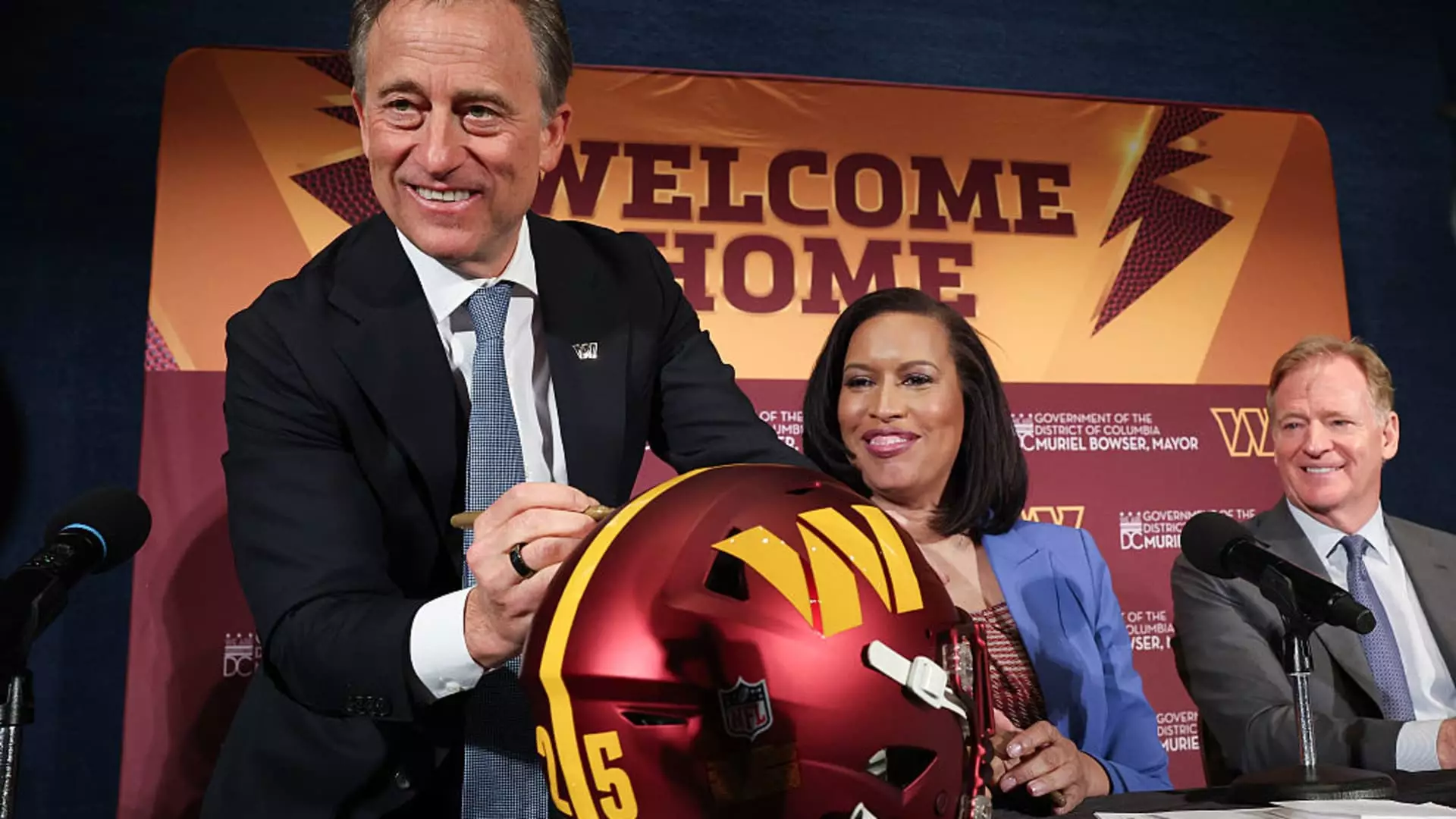In recent years, the landscape of professional sports investment has undergone a dramatic transformation. Private equity giants like Josh Harris have shifted their focus from traditional finance to the high-stakes world of sports ownership, effectively reshaping the industry’s power dynamics. Harris’s conglomerate, Harris Blitzer Sports & Entertainment, exemplifies this trend—owning stakes in some of the most lucrative teams across multiple major leagues. This consolidation is not coincidental; it’s a calculated move to leverage wealth accumulation by capitalizing on undervalued assets that private ownership can manipulate far more flexibly than their public counterparts.
This shift raises critical questions about the long-term consequences for the sports industry. The drive to build vast conglomerates signals a growing tendency toward monopolization, where a few wealthy investors could dominate entire leagues and influence the future of sports with their financial might. While fans might enjoy a marquee team with bolstered resources, the underlying risk is that the core model—rooted in competition and fan engagement—becomes secondary to profit-driven strategies. This centralization of control under private hands might threaten the traditional sporting values of accessibility and community rooting.
Private Assets versus Public Valuations: A Delicate Balance
Despite the soaring valuations of these sports empires—Harris’s group now valued at an astonishing $14.58 billion—the question persists: Will the industry ever venture into the public market? Harris dismisses this idea outright, asserting that private valuation remains superior—at least for now. This perspective aligns with the belief that publicly traded sports teams tend to be undervalued, primarily because of the rigidity of public markets that dislike long-term, capital-intensive investments.
Yet, this reluctance to go public isn’t purely about valuation. It reflects deeper concerns about transparency and control. Public ownership introduces scrutiny, shareholder pressures, and a requirement to deliver short-term results—all of which can be antithetical to the long-view approach that sports franchise owners prefer. The ability to spend freely on player acquisitions and stadium improvements without external interference is a strategic advantage private owners cherish. Harris’s comments reveal a mindset that prioritizes long-term stability and control over the fleeting gains offered by public markets.
The Strategic Value of Stadium and Infrastructure Investments
Harris’s move to relocate the Washington Commanders from Maryland to a new stadium in D.C. underscores a strategic shift that is as much about infrastructure as it is about currency strength. While such projects offer the promise of increased revenue and prestige, they also illustrate a fundamental reality: sports ownership is increasingly about building experience-driven, long-term assets rather than immediate profits.
The challenge with these massive investments is that the financial returns are often decades in the making. Fans might see a new stadium as a boon, but owners like Harris understand that their real gains rely on ancillary revenues—broadcast rights, branding, merchandise, and new sponsorship deals—that develop over years. This long horizon further dissuades owners from seeking the short-term pressures of a public market, where quarterly earnings can dictate strategic decisions. Harris’s approach exemplifies the mindset that sports are now a form of capital that accrues value over generations, making private ownership more appealing.
The Implications of Modern Financing for the Future of Sports Leagues
The NFL’s recent move to allow private equity firms to acquire minority stakes marks a notable shift. The league’s recognition that capital infusion without control can be mutually beneficial signals an evolving approach to maintaining league competitiveness while appeasing the financial ambitions of private investors. Harris frames this move as positive—long-term funds not burdened by the typical inflation of private equity can stabilize club finances while respecting the need for a sustainable approach.
However, despite these positive assertions, the overarching concern remains the centralization of wealth and influence in a few powerful hands. When wealthy individuals or private capital dominate team ownership, the risk is a form of corporate oligarchy that might distort competition, alienate small investors, and skew league policies toward maximizing individual profits rather than fostering a balanced and vibrant sporting environment. The very nature of private ownership inherently prioritizes the interests of the owners over fans and community stakeholders.
As private equity continues to amass influence in professional sports, the industry stands on a precipice. The seductive promise of long-term growth and control appeals to wealth-driven owners like Harris, but it risks transforming sports into a purely financial enterprise, stripping away the communal and competitive roots that have historically defined these leagues. The challenge moving forward is safeguarding the integrity of sports while navigating the complex realities of modern finance—an endeavor that demands vigilance and skepticism about the true motives behind such consolidation. Ultimately, the question is whether sports will serve as a platform for communal passion or become another playground for private wealth to wield unchecked power.

